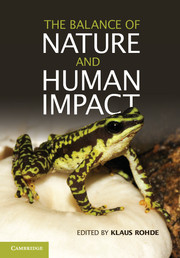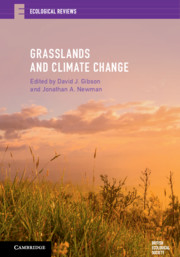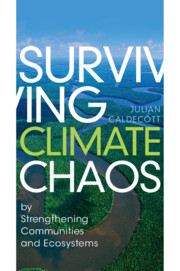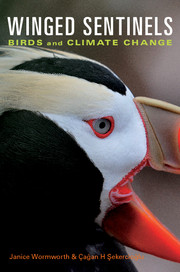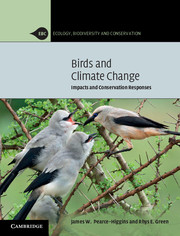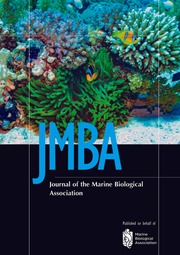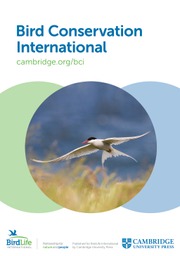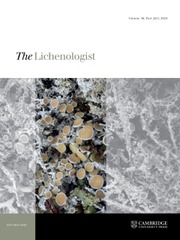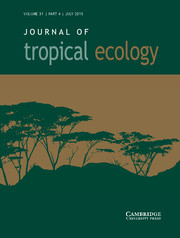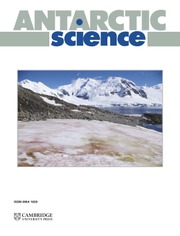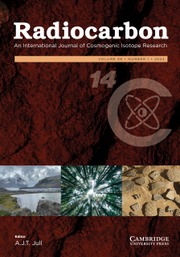The Balance of Nature and Human Impact
- Editor: Klaus Rohde, University of New England, Australia
- Date Published: February 2013
- availability: In stock
- format: Hardback
- isbn: 9781107019614
Hardback
Other available formats:
eBook
Looking for an inspection copy?
This title is not currently available on inspection
-
It is clear that nature is undergoing rapid changes as a result of human activities such as industry, agriculture, travel, fisheries and urbanisation. What effects do these activities have? Are they disturbing equilibria in ecological populations and communities, thus upsetting the balance of nature, or are they enhancing naturally occurring disequilibria, perhaps with even worse consequences? It is often argued that large-scale fluctuations in climate and sea-levels have occurred over and over again in the geological past, long before human activities could possibly have had any impact, and that human effects are very small compared to those that occur naturally. Should we conclude that human activity cannot significantly affect the environment, or are these naturally occurring fluctuations actually being dangerously enhanced by humans? This book examines these questions, first by providing evidence for equilibrium and non-equilibrium conditions in relatively undisturbed ecosystems, and second by examining human-induced effects.
Read more- Includes extensive and well-documented discussions of equilibrium and non-equilibrium aspects of ecological systems, providing a large body of literature not often found in standard ecology texts
- Assesses how human activities enhance non-equilibrium fluctuations in ecosystems, demonstrating that human-induced effects combine with naturally occurring fluctuations to cause environmental problems
- Discusses measures to limit biodiversity loss, providing a practical perspective on tackling important environmental problems
Reviews & endorsements
'This book summarizes ecological responses to global environmental change; it is relevant to interested readers of different backgrounds trying to understand why scientists are worried about current environmental change.' Integrative and Comparative Biology
See more reviews'Klaus Rohde's fascinating edited volume The Balance of Nature and Human Impact offers a snapshot of current research, exploring evidence for or against equilibrium processes from an array of systems, interspersed with reviews of literature on selected topics.' Brian Drayton, Biological Conservation
Customer reviews
Not yet reviewed
Be the first to review
Review was not posted due to profanity
×Product details
- Date Published: February 2013
- format: Hardback
- isbn: 9781107019614
- length: 426 pages
- dimensions: 254 x 178 x 24 mm
- weight: 1.01kg
- contains: 42 b/w illus. 12 colour illus.
- availability: In stock
Table of Contents
Preface
Introduction Klaus Rohde
Part I. Nonequilibrium and Equilibrium in Populations and Metapopulations:
1. Reef fishes: density dependence and equilibrium in populations? Graham Forrester and Mark Steele
2. Population dynamics of ectoparasites of terrestrial hosts Boris Krasnov and Annapaola Rizzoli
3. Metapopulation dynamics in marine parasites Ana Perez del Omo, Aneta Kostadinova and Serge Morand
Part II. Nonequilibrium and Equilibrium in Communities:
4. The paradox of the plankton Klaus Rohde
5. A burning issue: community stability and alternative stable states in relation to fire Peter J. Clarke and Mike J. Lawes
6. Community stability and instability in ectoparasites of marine and freshwater fish Andrea Simkova and Klaus Rohde
7. Ectoparasites of small mammals: interactive saturated and unsaturated communities Boris Krasnov
8. A macroecological approach to the equilibrial vs. nonequilibrial debate using bird populations and communities Brian McGill
Part III. Equilibrium and Nonequilibrium on Geographical Scales:
9. Island flora and fauna: equilibrium and nonequilibrium Lloyd Morrison
10. The turbulent past and future of arctic vascular plants: climate change, spatial variation, and genetic diversity Christian Brochmann, Mary E. Edwards and Inger G. Alsos
Part IV. Latitudinal Gradients:
11. Latitudinal diversity gradients: equilibrium and nonequilibrium explanations Klaus Rohde
12. Effective evolutionary time and the latitudinal diversity gradient Len Gillman and Shane Wright
Part V. Effects Due to Invading Species, Habitat Loss and Climate Change:
13. The physics of climate: equilibrium, disequilibrium and chaos Michael Box
14. Episodic processes, invasion and faunal mosaics in evolutionary and ecological time Eric Hoberg and Daniel R. Brooks
15. The emerging infectious diseases crisis and pathogen pollution Daniel R. Brooks and Eric Hoberg
16. Establishment or vanishing: fate of an invasive species based on mathematical models Yihong Du
17. Anthropogenic footprints on biodiversity Camilo Mora and Fernando Zapata
18. Worldwide decline and extinction of amphibians Harold Heatwole
19. Climatic change and reptiles Harvey B. Lillywhite
20. Equilibrium and non-equilibrium in Australian bird communities - the impact of natural and anthropogenic effects Hugh Ford
21. Population dynamics of insects: impacts of a changing climate Nigel Andrew
22. The futures of coral reefs Peter Sale
Part VI. Autecological Studies:
23. Autecology and the balance of nature-ecological laws and human induced invasions Gimme Walter
24. The intricacy of structural and ecological adaptations: micromorphology and ecology of some Aspidogastrea Klaus Rohde
Part VII. An Overall View:
25. The importance of interspecific competition in regulating communities, equilibrium vs. nonequilibrium Klaus Rohde
26. Evolutionarily stable strategies: how common are they? Klaus Rohde
27. How to conserve biodiversity in a nonequilibrium world Klaus Rohde, Hugh Ford, Nigel R. Andrew and Harold Heatwole
Index.
Sorry, this resource is locked
Please register or sign in to request access. If you are having problems accessing these resources please email [email protected]
Register Sign in» Proceed
You are now leaving the Cambridge University Press website. Your eBook purchase and download will be completed by our partner www.ebooks.com. Please see the permission section of the www.ebooks.com catalogue page for details of the print & copy limits on our eBooks.
Continue ×Are you sure you want to delete your account?
This cannot be undone.
Thank you for your feedback which will help us improve our service.
If you requested a response, we will make sure to get back to you shortly.
×
